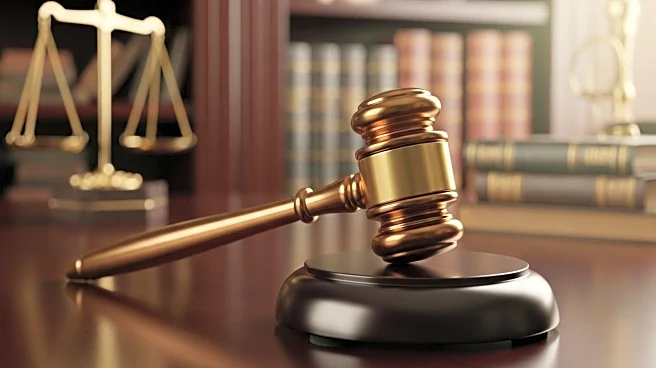What is the story about?
What's Happening?
The Supreme Court is set to review longstanding restrictions on presidential authority over federal agencies, potentially granting President Trump the power to dismiss executive branch officials at will. This review involves cases challenging the protections that have historically shielded members of independent agencies, such as the Federal Trade Commission and the Federal Reserve, from removal without cause. The Court's decision could overturn the 1935 Humphrey's Executor ruling, which upheld such protections. The cases include the dismissal of Federal Trade Commissioner Rebecca Slaughter and the temporary protection of Federal Reserve Board member Lisa Cook from removal. Legal analysts suggest that a ruling in favor of expanded presidential power could allow the president to significantly reshape the federal bureaucracy.
Why It's Important?
The potential expansion of presidential authority to fire federal officials could significantly alter the balance of power within the U.S. government. If the Supreme Court rules in favor of President Trump, it could lead to increased executive control over economic regulation, immigration, and criminal justice, reducing the independence of federal agencies. This shift could enable rapid policy changes and make it more challenging to reverse them, impacting industries and public policy. Critics argue that such changes could erode the checks and balances designed to prevent partisan control over federal agencies, while supporters emphasize the need for flexibility in executive decision-making.
What's Next?
The Supreme Court will hear arguments on these cases in the coming months, with decisions expected to set precedents for presidential authority over federal agencies. The outcomes will influence how quickly presidents can implement policy changes and the extent of judicial oversight over executive actions. The Court's rulings will also affect ongoing debates about the separation of powers and the role of independent agencies in the federal government.
Beyond the Headlines
The broader implications of this potential shift in presidential power include ethical and legal considerations regarding the independence of federal agencies. The ability to dismiss officials without cause could lead to increased politicization of regulatory bodies, affecting their ability to function impartially. This development raises questions about the long-term impact on governance and the preservation of democratic principles in the U.S.















